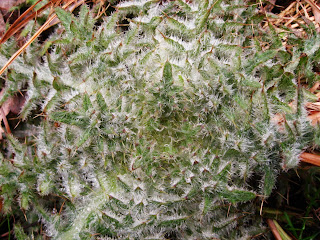I want to share what I am learning in herbal classes and clinics, and create discussion around these topics, to further our understanding of healthcare and herbal medicine. Please message me with any feedback, questions, or thoughts that arise after reading this, and future posts! Thank you.
My goal is to write something related to clinical, botanical, or medicinal knowledge/ learnings/ observations on a weekly basis. Below are some herbal medicine clinic notes from working with 7song at the Ithaca Free Clinic, and listening in classes with 7song at the Northeast School of Botanical Medicine. I am greatly enjoying my learning here, and excited to share with you, my larger community:
How to be an Herbal Clinican... some initial notes:
- Think fast and talk with a calm yet commanding voice. Establish rapport and give feeling of confidence.
- Know how to gracefully cut people off in their stories. People will often talk for too long about their health-related (or even non-related) stories. As we have limited time with each patient, we must be judicious with our time management, and know what questions to selectively ask, and what stories to listen to.
- "How can I help this person?" is the first question to ask, instead of "What herbs fit this situation?"
- Ask, "What are your symptoms?" And then, we can explore what is the root cause of the symptoms (instead of treating the symptoms), and work towards rooting out the the root. Get specific. Is this an acute or chronic disease?
- For patient compliance, keep the medicine simple: down to 2-3 medicines to take.
- We're healthcare workers first, and herbalists second. As herbalists, we must know when to refer patients to other practitioners, and not be hard-headed about treating ONLY with herbs. Modern medicine lacks attention to individuality; herbal medicine offers other choices. Holistic medicine looks at the person as a whole being, and treats it as such. I enjoy seeing when people come to us because nothing else has worked... and herbal medicine is working, if only a little, sometimes a lot. I also saw this in the Chinese medicine clinic in Taiwan. I am sure that all clinics see this: Western medicine cannot successfully treat whatever disease/symptoms the person is undergoing so they try something different: "alternative"/ "traditional" medicines. And then, sometimes, in the best cases, it works. In other cases, it offers something new to try. This may give a feeling of hope. Or, this may give a feeling of further frustration/stress when it doesn't work. Either way, it's another choice.
- Herbal clinic work is first being a great listener and asking great questions, and secondly knowing how to treat with plant medicine, or refer to other practitioners.
- Offer workable lifestyle change suggestions, such as dietary changes, exercise, and changing the living environment, if possible. These can contribute more to longterm relief than medicines. Preventative medicine, first!
- Patients sometimes come in not really understanding what's going on this their own bodies, or not understanding some elses' diagnoses of their symptoms. Know how to explain things in a simple and understandable manner, while understanding the complex language with big words, of western medicine.
- Facial expressions, projecting emotions, and offering comfort or sympathy: be emotionally present for a patient, but don't belittle them with sad faces or sounds of "awww," as that may make the person feel like you don't know how to help them. Instead, keep a straight face, collect objective information, and offer helpful solutions.
- Stress contributes a lot to health problems. Lack of sleep can trigger many problems as well. Deep breathing and relaxation can go a long ways toward general health (hooray, yoga!)
(Photos: a nest I found in the woods near my home, and some young thistles' basal rosette. I offer this circular imagery. as it reminds me of the imagery of the spiral, or of the snake eating its own tail: the Circle of Life. I feel like this Circle imagery is a good representation of healthcare, and life in general. Life is a circle. We are born, we get sick, we die. And a lot happens in between the book-ends of life and death, but this is the basic circle. Good healthcare helps make this circle round and smooth, making life transitions smoother, and the bumps along the way more comfortable and manageable. And preventative medicine is like building a solid nest, a strong bodily foundation, from which to springboard strong healthy vibrant human beings!)
--
~~~~~~~
Jiling . 林基玲
Jiling . 林基玲
. wild . creative . spirit
626.344.9140 / skype: Lin.JiLing

